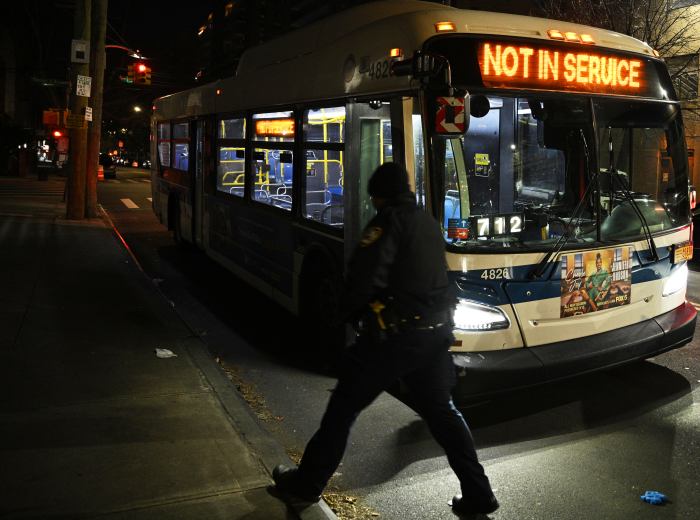By Daniel Massey
Although he traveled the world for the United Nations and won the Nobel Peace Prize for his role as architect of the 1949 peace accord between the new state of Israel and the Arab states, Ralph Bunche always made time for Queens.
The diplomat, who died in 1971 at the age of 67, once said he had a “deep-seated bias against hate and intolerance.” He lived in Parkway Village and then moved to a Tudor-style house on Grosvenor Road in Kew Gardens around 1953.
Bunche was the first black to be awarded the Nobel Peace Prize for leading the 81-day marathon negotiations that resulted in an armistice between Israel and its Arab neighbors, but he also earned recognition for his roles in peacekeeping operations in the Suez region in 1956, the Congo in 1960 and Cyprus in 1964.
While his Kew Gardens home served as Bunche’s launching pad for UN trips to overseas spots, such as Sweden and Kashmir, it was also a place to which he loved to return. During his time on Grosvenor Street, he raised a family with his wife, Ruth, served on the board of governors of the Kew Gardens Civic Association and maintained an exquisite backyard garden.
Bunche would attend civic association meetings with regularity despite his demanding UN schedule, said longtime Kew Gardens resident Murray Berger, a member of the group during Bunche’s tenure.
“We used to get phone calls from Sweden, overseas, wherever in the world he was, saying ‘I’m going to miss tonight’s meeting,’” Berger recalled.
Sylvia Howard Fuhrman, who was civic association president and then chairwoman of its board of governors for a combined 35 years, said Bunche was “totally committed” to Kew Gardens.
“There were things which were very small potatoes compared to his real profession, things like traffic lights, police protection,” she said. “There were so many issues the outsiders would consider small but he considered important to our community.”
Fuhrman recalled protesting with Bunche against city zoning standards on the corner of Mayfair Road and Park Lane South.
“We rang doorbells together until 1 a.m. to gain support of the other neighbors,” she said. “We eventually won that battle.”
In 1959, Bunche clashed with the West Side Tennis Club at Forest Hills after the club refused to allow him and his son, Ralph Jr., to join.
“Ralph Sr. made a big to-do,” Fuhrman recalled. The club eventually apologized and the two were granted membership. The New York Times reported the Bunches then declined the offer because Ralph Sr. thought the change in policy was based on his personal prestige and not on the principle of racial equality.
“My brother wasn’t much of a tennis player, but they made it into a big thing,” said the senior Bunche’s daughter, Joan, in an interview last week. Fuhrman said Bunche Sr. “made a point and it was one more check against discrimination.”
Bunche was nearly lynched in Alabama in the late 1930s when he was collaborating on Gunnar Myrdal’s classic study on race relations, “An American Dilemma,” and advised the Department of State on Africa and colonial affairs before he began work for the United Nations, where he was a key diplomat for 25 years. He retired in 1971 as under-secretary general for special political affairs.
Joan Bunche said her father loved living in Queens. She described him as a huge baseball fan who enjoyed visiting Shea Stadium to watch the Mets play. During UN meetings, security guards would often pass scribbled messages to Bunche containing the scores of ballgames.
“My mother would have loved living in Manhattan, but my father was from California and didn’t want to live in an apartment,” she said. “He wanted to be able to drive to work, have a house and a garden.”
Bunche drove his car to the United Nations in Manhattan each day except for one week in February 1969 when Queens was buried beneath 15 inches of snow. Borough residents who accused Mayor John Lindsay of leaving the streets snowbound a week after a blizzard had a powerful ally: the undersecretary sent a telegram to City Hall that read, “As far as getting to the United Nations, I may as well be in the Alps.”
Her father did not like to see his home borough treated as a “poor country cousin,” Joan Bunche said. “He was very happy living in Queens.”
Reach reporter Daniel Massey by e-mail at Timesledger@aol.com or call 229-0300, Ext. 156.


































